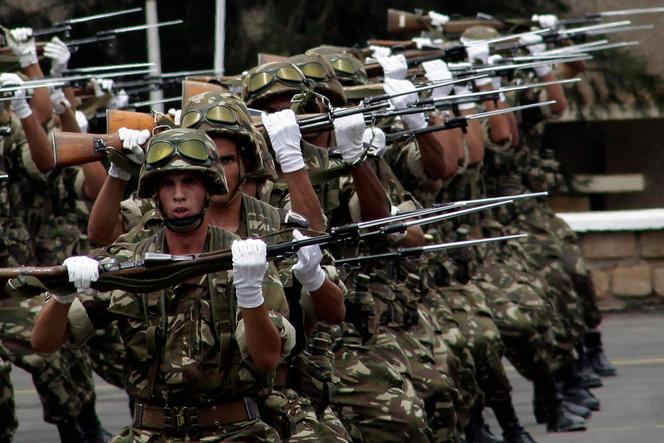


In the run-up to the early presidential elections scheduled for Saturday, September 7, Abdelmadjid Tebboune has given the Algerian army a new gift. On June 27, the head of state, who is standing for re-election, signed a decree allowing officers to "occupy certain senior state positions within strategic and sensitive sectors in terms of sovereignty and vital interests for the country." In theory, the measure could enable senior army officers' diverse skills to be used in the civilian sector. In practice, however, it is likely to result in "the army's increased influence in the state's civilian spheres," said Akram Kharief, a specialist in defense issues, in an article published on the website of the Rosa Luxembourg Foundation.
The demand of the Hirak, a peaceful protest movement against the regime that began on February 22, 2019, in rejection of a fifth term for Abdelaziz Bouteflika, for a "civilian, non-military state" – described as a desire to "destroy the foundations of the state" by former army chief of the general staff Ahmed Gaid Salah, who died in December 2019 – now seems out of reach.
In Algeria, no one dares discuss the role of the army, whose influence has never been so visible. Both external and internal threats, embodied by the movement for the self-determination of Kabylie (MAK) and the Islamo-conservative group Rachad, both classified as "terrorists" by the authorities, are dramatized. In correlation with these alleged threats, the defense budget was increased to almost €20 billion in 2023, making it the country's biggest expense.
For the army, the challenge in recent years has been to try to restore unity of command and, above all, to re-establish the "red line" that keeps its role out of the public debate. This had begun to be crossed in the media after the hostage-taking carried out by jihadists against the Tiguentourine gas complex in January 2013.
At the time, the dissensions between General Salah, chief of the general staff of the army and also deputy defense minister, and the powerful Department of Intelligence and Security (DRS, formerly Military Security), headed since 1990 by General Mohamed Lamine Mediène, known as "Toufik," were often mentioned in the press. The former secretary general of the Front de Libération Nationale (National Liberation Front, FLN, center-left), Amar Saadani, had also launched virulent attacks against General Toufik, who eventually retired on September 13, 2015.
The army, officially the backbone of the regime since independence in 1962, withdrew from political life with the end of the single-party system, where it was represented in the FLN central committee and political bureau in the wake of the riots of October 1988, which left over 500 people dead. Its exit was ratified by the February 18, 1989 Constitution, paving the way for a multiparty system, but the withdrawal never really took place. The military continued to make and break presidents, until the Hirak protests.
You have 50.07% of this article left to read. The rest is for subscribers only.
